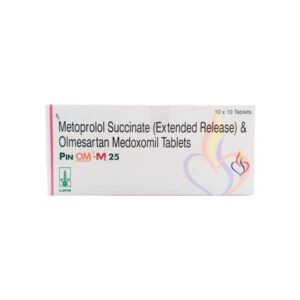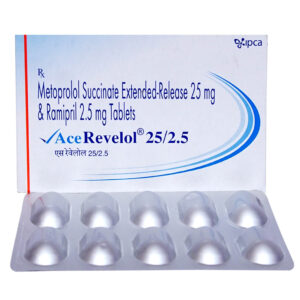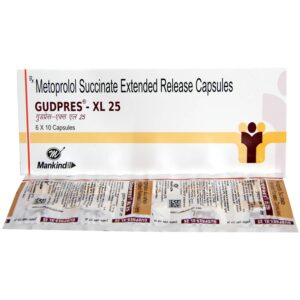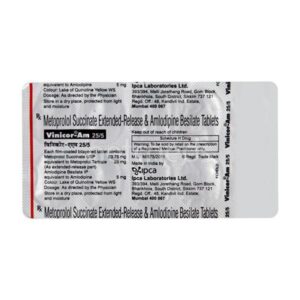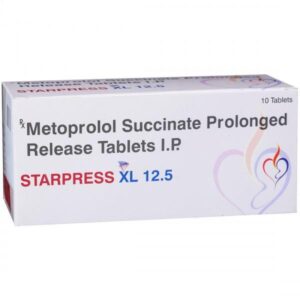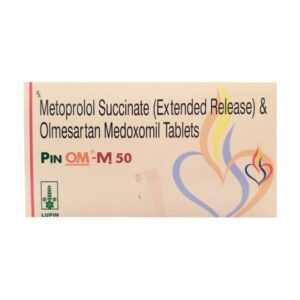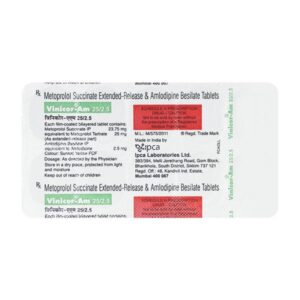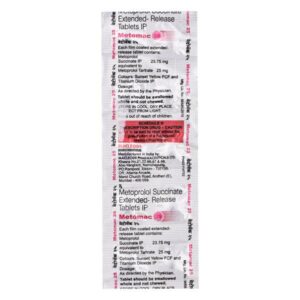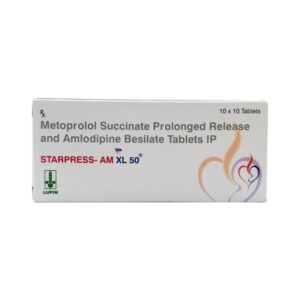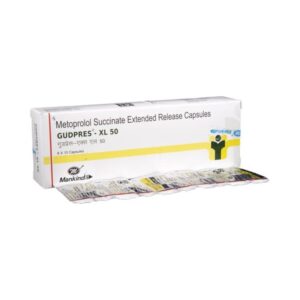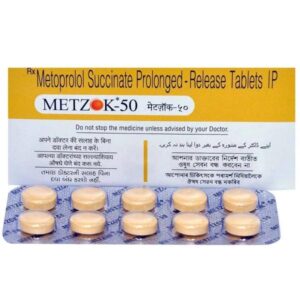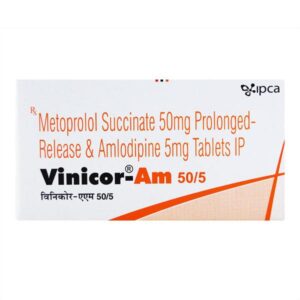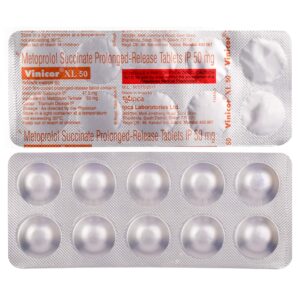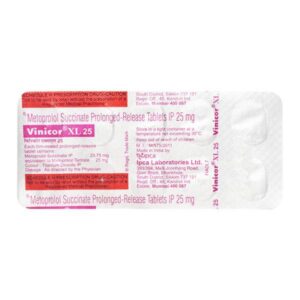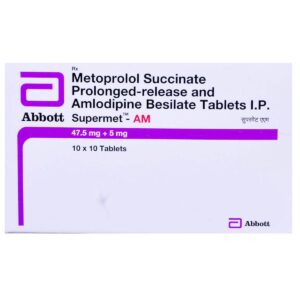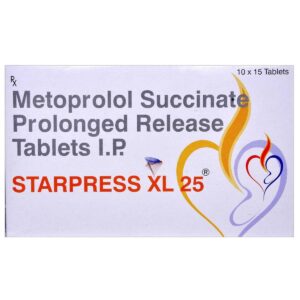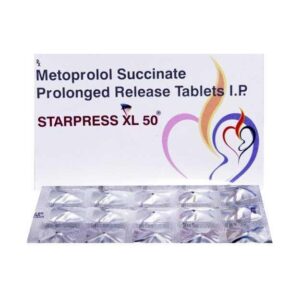METOPROLOL SUCCINATE + METOPROLOL TARTRATE
Metoprolol Succinate: Metoprolol Succinate is a medication commonly prescribed to treat high blood pressure (hypertension), chest pain (angina), and heart failure. It belongs to a class of drugs called beta blockers.
The mechanism of action of Metoprolol Succinate involves blocking the effects of adrenaline and other stress hormones on the heart. By doing so, it reduces the heart rate and force of contraction, which ultimately helps lower blood pressure and improve blood flow to the heart.
The typical starting dose for Metoprolol Succinate is 25-50 mg once daily, and it can be increased gradually based on individual response and tolerance under the supervision of a healthcare professional. The maximum recommended dose is usually 200 mg per day.
As with any medication, Metoprolol Succinate may cause side effects. Common side effects include fatigue, dizziness, low blood pressure, slow heart rate, cold hands or feet, and gastrointestinal disturbances such as nausea or diarrhea. Some individuals may also experience vivid dreams or nightmares, depression, or difficulty sleeping.
In rare cases, Metoprolol Succinate may cause more serious side effects, such as chest pain, shortness of breath, worsening heart failure symptoms, irregular heartbeat, or severe allergic reactions. If any of these occur, immediate medical attention should be sought.
It’s important to note that the above information is a general overview, and the use of Metoprolol Succinate may vary depending on the specific condition being treated and individual patient factors. It is always recommended to consult with a healthcare professional before starting or adjusting any medication regimen.
Metoprolol Tartrate: Metoprolol Tartrate is a medication commonly prescribed to treat high blood pressure (hypertension), angina (chest pain), and certain types of heart failure. It belongs to a class of drugs called beta-blockers.
The mechanism of action of Metoprolol Tartrate involves blocking the effects of adrenaline on beta-1 receptors, which are primarily found in the heart. By doing this, Metoprolol reduces the heart rate and force of contraction, thus lowering blood pressure and reducing the workload on the heart. It also helps to improve the efficiency of the heart’s pumping action, making it useful in conditions like heart failure.
The typical starting dose of Metoprolol Tartrate for hypertension is 25-50 mg orally, twice daily. This can be increased gradually every few days based on the response and tolerance, usually up to a maximum of 400 mg per day. For angina or heart failure, the initial dose is usually lower, and the dosage adjustments are made based on the individual’s condition.
As with any medication, Metoprolol Tartrate may have potential side effects. The most common side effects include fatigue, dizziness, low blood pressure, slow heart rate, and gastrointestinal disturbances like nausea and diarrhea. Some individuals may also experience cold hands and feet, shortness of breath, depression, and vivid dreams. Although these side effects are generally well-tolerated, it is essential to notify a healthcare provider if they become severe or persistent.
Metoprolol Tartrate may not be suitable for individuals with certain conditions, including severe heart failure, asthma or other respiratory disorders, certain types of heart rhythm disorders, and certain circulation disorders. Therefore, it is crucial to consult a healthcare professional before starting this medication to ensure its safety and suitability for an individual’s specific medical history.
It is important to note that this drug description serves as a general overview, and specific dosing and side effects may vary based on individual circumstances. Always follow the instructions provided by your healthcare provider and consult them for personalized advice regarding the use of Metoprolol Tartrate.

